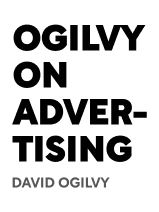

This article is an excerpt from the Shortform book guide to "Ogilvy On Advertising" by David Ogilvy. Shortform has the world's best summaries and analyses of books you should be reading.
Like this article? Sign up for a free trial here .
How can advertising agency management skills help you manage your agency’s money? What do you need to know about managing money for your agency?
Advertising agency management isn’t just about wowing clients and producing creative work. You’ll also need basic business skills for managing money and finances.
Check out this advice for advertising agency management from Ogilvy on Advertising.
Advertising Agency Management: Managing Money
Agencies typically make less than 1% profit after taxes, and Ogilvy estimated that the richest agency heads held fortunes of $20 million. (The size of your company doesn’t have anything to do with profit. In 1981, Ogilvy’s company was more profitable than one that billed 200% more.)
Consider these advertising agency management techniques for managing money.
Payment Methods
There are two ways to get paid in advertising and while Ogilvy pioneered the fee system, he didn’t have a preference or recommend one over the other:
1. Commission. In the commission system, the agency is paid by the media outlet the client purchases advertising from. This is the traditional payment model.
- For example, if a client buys a print ad in a newspaper, the newspaper adds a certain percentage to the bill it sends to the client; then it passes the extra percentage on to the ad agency as a commission when the client pays the bill.
2. Fees. In the fee system, the client pays for the specific services they want.
How to Use Profit
Ogilvy recommends not spending your money on:
- Investing in other companies. Ogilvy has only ever seen this strategy lose money.
- Buying other advertising agencies. Agencies usually only go up for sale until they’re in trouble. Additionally, if you keep the current staff there will be friction between their company culture and yours, but if you replace the staff, you’ll lose clients who liked the old staff. (Some people try to avoid this by buying an agency but leaving it alone, even letting it compete with their agency.)
Ogilvy recommends that instead, you do spend your money on:
- Opening new offices. This is advantageous because you can maintain your company culture and don’t inherit other companies’ problems. The downside is start-up costs.
- Purchasing your office building. This will save you money on leasing.
- Saving money for hard times. In economic downturns, some people cut their advertising budgets even though studies have found that companies that keep advertising see greater profit during recessions than those that stop. (For example, during World War II, no one was allowed to sell margarine under a brand name. Unilever advertised its brand-name margarine throughout the war, even though no one could get it. When the war ended, Unilever became the top brand.)

———End of Preview———
Like what you just read? Read the rest of the world's best book summary and analysis of David Ogilvy's "Ogilvy On Advertising" at Shortform .
Here's what you'll find in our full Ogilvy On Advertising summary :
- What the "father of advertising" has learned from his decades' of experience
- How to craft easy-to-understand ads that work
- The 6 pioneers of the advertising industry






